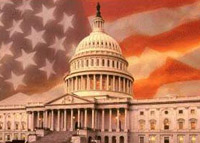|
|
|
Class-action lawsuit launched over pet food
Class Action |
2007/03/23 09:59
|
| Jacqueline Johnson of Madison, Wisconsin filed a lawsuit Tuesday claiming that Menu Foods, Inc. produced and distributed dangerous pet food. More than 95 pet owners have joined a class-action lawsuit against Menu Foods Inc., saying it produced and distributed pet food that might be dangerous, and possibly deadly, to animals. The complaint contends her gray tabby, Gumbie, became ill after eating food from an Iams Select Bites pouch in early February. Gumbie became lethargic, refused food and lost weight, she said, and a veterinarian diagnosed acute renal failure. The cat was "pet-hospitalized" and prescribed intravenous fluids. Johnson told CNN she considers herself lucky. "Thankfully we got her to the vet in time. My cat was very ill, but there are lots of people around the country whose pets have died or been euthanized." Since coming home, Gumbie has required a great deal of care. "It is stressful to have to stick a needle in the cat every day," said Johnson, who has had to administer daily subcutaneous fluid-and-drip injections since bringing Gumbie home. Gumbie is likely to require medical tests and monitoring every few months, and Johnson expects this will increase her expenses considerably. She said she already has paid more than $3,000 in veterinary bills. Johnson's attorney, Frank Jablonski of Progressive Law Group, said more than 95 people have joined the suit since it was filed, and he expects many more. "We have all the clients we need," he said. "We wouldn't bring a lawsuit that we are not confident we will win." The lawsuit is seeking an unspecified amount of damages. Courts will have to certify the class and what venue will hear the case. Menu Foods spokesperson Sam Bornstein declined to comment on the lawsuit but said the company has received tens of thousands of consumer inquiries and is doing its best to respond to them. "Our hearts go out to many thousands of pet owners, some of them for their losses and some for their worry," he said. Menu Foods announced the precautionary recall March 16. The recall affects dog and cat food manufactured between December 3 and March 6, and is limited to "cuts and gravy" style pet food in cans and pouches produced at its plants in Kansas and New Jersey. The food is packaged under a wide variety of brand names. Both the Food and Drug Administration and Menu Foods have been unable to identify the root cause of the problem, but the FDA said Tuesday that officials were focusing on a recent supply of wheat gluten as the likely culprit. |
|
|
|
|
|
|
Pfizer loses court ruling on Norvasc patent
Court Watch |
2007/03/23 09:53
|
Pfizer Inc. said Thursday that a federal appeals court has overturned a lower court decision that upheld the patent protecting its widely-prescribed hypertension drug Novasc, a move that opens the door to early generic competition. In a statement, Pfizer said the U.S. Court of Appeals for the Federal Circuit reversed a lower court ruling in favor of Pfizer, which found the Norvasc patent to be valid and enforceable. The appeal was brought by Apotex, which has been seeking to have the Pfizer patent nullified in order to put out a generic version of the drug. Pfizer added that it is "reviewing the decision and is considering all its options, including seeking reconsideration."
Other generic drugmakers have also been seeking to put out generic versions of the drug, including Mylan Laboratories (MYL) . Norvasc is slated to lose patent protection later this year. Prudential analyst Timothy Anderson said in his note Thursday that the appeals ruling could allow for the introduction of generic versions of Norvasc as soon as next week. "We did not anticipate this ruling, but it will probably only have a muted impact on Pfizer which is already a washed-out, low valuation name," wrote Anderson. "Earlier generic entry is a negative and could cost the company $1 billion in sales or so in 2007, but given Pfizer's size and cash generation this it not very material to the company's future outlook, in our opinion," Anderson added. |
|
|
|
|
|
|
Court Snuffs Internet Smut Law
Practice Focuses |
2007/03/23 09:45
|
| Nearly nine years after Congress passed the Child Online Protection Act (COPA), a Philadelphia federal court judge ruled Thursday that COPA is unconstitutional. As a result of his findings, Philadelphia Judge Lowell Reed issued a permanent injunction against enforcing the controversial, though never enforced, law. Reed ruled that the American Civil Liberties Union's (ACLU) arguments against COPA, "true, reliable and credible and I accept those facts" and determined COPA violated the First Amendment's right to free speech. Reed said that Attorney General Alberto Gonzales failed to "meet his burden of showing that COPA is the "least restrictive, most effective" alternative in achieving the "compelling [public] interest." The ACLU filed a suit for permanent injunction relief against enforcing the law a week after Congress passed the measure in 1998. The organization argued that COPA overreached lawmakers' good intentions to protect children from "sexually explicit" material available online. Under COPA, children are defined as anyone under 17-years of age. As written by Congress and signed by then President Bill Clinton, any commercial Web site operator that made "sexually explicit" material available to minors was, under COPA, subject to criminal and civil sanctions even if the online material was otherwise acknowledged as free speech for adults but deemed "harmful to minors." COPA provided a safe harbor for Web site owners if they required the use of a credit card or other identification method used to verify age or, significantly, "any other reasonable measures that are feasible under available technology." The ACLU immediately contended that Internet filtering technology was more feasible than any age verification methods, mitigating, the ACLU claimed, the impact on otherwise protected free speech. By the time the Bush administration inherited the political hot potato, it steadfastly maintained that filtering technology does not work and the threat of jail time and steep fines were the most effective defenses against making sexually explicit material available to minors. Reed wrote that the ACLU's clients "post content on their Web sites including…resources on sexual health, safer sex, and sexual education; visual art and poetry; resources for gays and lesbians; online magazines and articles; music; and books and information about books that are being offered for sale." No matter Congress' valid interests to protect children, Reed ruled, such free speech restrictions on content stifled legal online free speech. "I may not turn a blind eye to the law in order to attempt to satisfy my urge to protect this nation's youth by upholding a flawed statute, especially when a more effective and less restrictive alternative is readily available." Reed wrote. As the case bounced all the way up from the district court to the Supreme Court and back down again, the Bush administration insisted filtering technology is not an effective tool for parents to censor adult content for their children. The ACLU argued otherwise. As the case dragged on for almost a decade, the Department of Justice (DoJ) eventually subpoenaed Google, Yahoo, MSN and AOL for proof child protection filters were ineffective tools against sites with sexually explicit material. While Google successfully fought the subpoenas, the other search engines turned over evidence that convinced Roberts that "filtering products block both Web pages originating from within the United States and Web pages originating from outside the United States." That determination, Roberts ruled, sank the DoJ's defense of COPA. Roberts said that, in addition to their content-filtering features, filters can provide parents with a report indicating which Web sites a child visited, which sites were blocked, the number of e-mails and instant messages a child sent and to whom a child sent e-mail or instant messages. Roberts further ruled that Internet-filtering technologies offer "money-back guarantees or free trial periods, so that parents can simply download a filtering product for free over the Internet and then use it for a set time period to see if it is something that they want to continue using." "Based upon the testimony of [ACLU witnesses], which I accept, I find that filters generally block about 95 percent of sexually explicit material," Roberts ruled. He also determined that two separate reports commissioned by Congress, "have confirmed that content filters can be effective at preventing minors from accessing harmful materials online." The Bush administration has the right to appeal the decision, but the DoJ had not responded to Roberts' decision by press time. |
|
|
|
|
|
|
Disney digital plans hit by Liberty lawsuit
Venture Business News |
2007/03/23 08:09
|
Walt Disney's plans to distribute its content over new digital platforms came under pressure on Thursday when Liberty Media sued the company, saying lucrative licensing contracts had been violated by the sale of Disney films over the internet. Starz Entertainment, a pay-TV service owned by Liberty, which is controlled by John Malone, licenses Disney films for broadcast. But Starz alleged in a suit filed in California that the sale of Disney films over the internet on Apple's iTunes platform and via Walmart.com breached its licensing deals with Disney. Recent Disney films to have been sold on iTunes include Pirates of the Caribbean: Dead Man's Chest and Cars. Starz contends these films should have not been made available for digital download until they had appeared on the company's own services. Starz filed the suit against Buena Vista Television, a subsidiary of Disney. In the court papers, Starz claims to have paid more than $1bn over last 10 years for exclusive rights to Disney content. Robert Clasen, chief executive and chairman of Starz Entertainment, said talks had ended in failure, and the the company had been left with "no choice". "Our agreements clearly prohibit them from selling their movies by electronic download over the internet while they are exclusive to Starz. If Disney is permitted to violate our contract in this manner, it will undermine the integrity of copyright in general which is a cornerstone of our industry." Mr Clasen said Hollywood studios had aggressively moved to protect the copyright of their content on the internet. "Starz must be equally aggressive in protecting the value of the deal it made." The suit seeks to prevent Buena Vista Television "from continuing to infringe on Starz's rights". Buena Vista said: "We believe Starz misreads the agreement with Buena Vista Television and that its claim is without merit. Buena Vista Television retained and has the right to distribute its motion pictures in a wide range of mediums." Digital distribution of content has become a central part of Disney's growth strategy under Bob Iger, the media group's chief executive. The group has led its peers, signing the first distribution deal between a Hollywood studio and Apple's iTunes platform. |
|
|
|
|
|
|
School settles lawsuit with students for $69,000
Breaking Legal News |
2007/03/23 06:00
|
| Three students expelled for making a movie in which evil teddy bears attack a teacher will share $69,000 in a settlement of their civil rights lawsuit. The board of the Charles A. Beard School Corp. voted 5-2 on Tuesday to approve the settlement of the lawsuit, which stemmed from the school's response to a movie called "The Teddy Bear Master." The expulsions will be erased from the record and the students will be allowed to make up for missed work. Two of them still must write letters of apology to a teacher named in the movie and his wife. In the movie, the "teddy bear master" orders stuffed animals to kill a teacher who had embarrassed him, but students battle the toy beasts, according to documents filed in court. School officials last year expelled the four students who made the film, arguing that it was disruptive and they saw it as a threat to Knightstown Intermediate School teacher Dan Clevenger. Two of the students sued, claiming their free-speech rights were violated. A federal judge in December ordered that school officials allow them back into class, saying that although the students should apologize for the "humiliating" and "obscene" movie, district officials had not proven that the work disrupted school. A third student joined the lawsuit after it was filed, and the fourth student did not challenge the expulsion. Superintendent David McGuire said the school district's insurance company will cover the cost of the $69,000 settlement that will be split among the plaintiffs. |
|
|
|
|
|
|
Judge orders new trial in Ford lawsuit
Breaking Legal News |
2007/03/23 05:02
|
| A U.S. federal judge has thrown out a $15 million jury verdict and ordered a new trial for a lawsuit against Ford Motor Co. by a Tulsa couple whose son died in a rollover crash in November 2003. U.S. Chief District Judge Claire Eagan vacated the jury‘s ruling against Ford and ordered the case retried beginning July 16. Brewster said Wednesday that Eagan‘s basis for the decision involved matters that Ford‘s attorneys didn‘t object to during the trial. |
|
|
|
|
|
|
Federal Judge Blocks Online Pornography Law
Breaking Legal News |
2007/03/22 22:58
|
| A federal judge on Thursday granted a permanent injunction against enforcement of the Child Online Protection Act, a federal law that imposes civil and criminal penalties on website operators for making sexually explicit materials available to minors over the Internet and require adult websites to verify viewer age with a credit card number or any other reasonable method of age verification. Senior District Judge Lowell A. Reed, Jr. of the Eastern District of Pennsylvania ruled: After a trial on the merits, for the reasons that follow, notwithstanding the compelling interest of Congress in protecting children from sexually explicit material on the Web, I conclude today that COPA facially violates the First and Fifth Amendment rights of the plaintiffs because: (1) at least some of the plaintiffs have standing; (2) COPA is not narrowly tailored to Congress’ compelling interest; (3) defendant has failed to meet his burden of showing that COPA is the least restrictive, most effective alternative in achieving the compelling interest; and (4) COPA is vague and overbroad. As a result, I will issue a permanent injunction against the enforcement of COPA. The US Supreme Court in 2004 upheld a temporary injunction against the enforcement of COPA in Ashcroft v. ACLU, holding that COPA would likely violate the First Amendment, and remanded the case back to the District Court. Judge Reed presided over a four-week trial on the merits which concluded in November 2006. COPA was enacted in 1998 after similar provisions contained in the Communications Decency Act (CDA) were struck down in Reno v. ACLU as unconstitutional because it was not narrowly tailored to serve a compelling governmental interest and because less restrictive alternatives were available. Last year, Google fought a Justice Department subpoena seeking to force the search engine giant to hand over a large amount of user data, including one week's worth of query searches and up to 1 million web addresses as part of a federal effort to rewrite COPA. |
|
|
|
|
|
|
Class action or a representative action is a form of lawsuit in which a large group of people collectively bring a claim to court and/or in which a class of defendants is being sued. This form of collective lawsuit originated in the United States and is still predominantly a U.S. phenomenon, at least the U.S. variant of it. In the United States federal courts, class actions are governed by Federal Rules of Civil Procedure Rule. Since 1938, many states have adopted rules similar to the FRCP. However, some states like California have civil procedure systems which deviate significantly from the federal rules; the California Codes provide for four separate types of class actions. As a result, there are two separate treatises devoted solely to the complex topic of California class actions. Some states, such as Virginia, do not provide for any class actions, while others, such as New York, limit the types of claims that may be brought as class actions. They can construct your law firm a brand new website and help you redesign your existing law firm site to secure your place in the internet. |
Law Firm Directory
|
|








